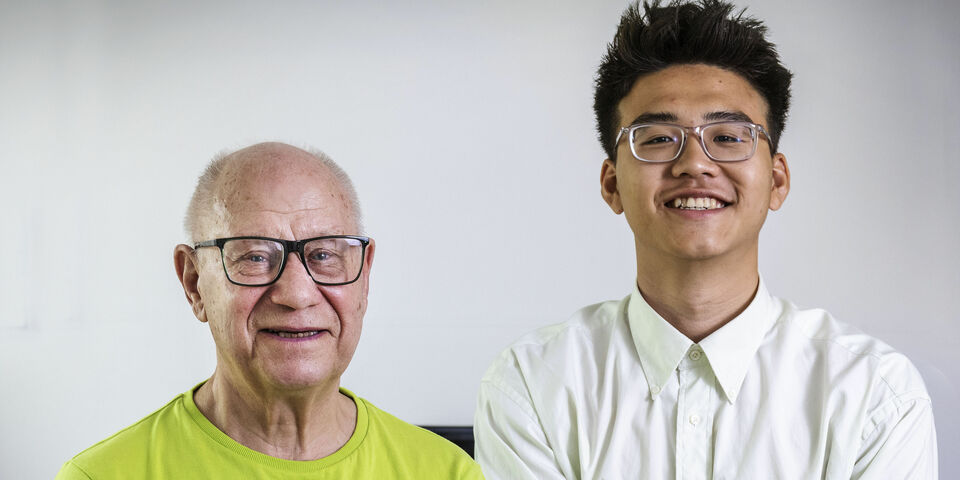Hosts for a hundred students
In an effort to increase the number of rooms available to students, TU/e, along with the Design Academy, Fontys and the municipality of Eindhoven, has partnered up with Hospi Housing. The online platform connects students to host families and hosts, thus bringing back a form of living arrangement that used to be much more common in the past. “This solution is obvious.”
Amidst the dire housing shortage among students, many homeowners in Eindhoven have one or even multiple spare rooms in their homes. That offers a lot of potential, says Daan Donkers, one of the founders of Hospi Housing. He was still a student in Utrecht when he founded the platform in that same city. Now, some 120 students have found lodgings with landlords or landladies via Hospi Housing in Utrecht.
As of last month, the platform is also available in Eindhoven. “Currently, we have ten hosts in Eindhoven and five more throughout the region”, says Donkers. An agreement was made with the municipality of Eindhoven to provide 100 rooms by the end of the year. “That’s an ambitious goal, because normally, it would take us two years to reach that number. It takes a while before you have a large housing supply, because people first want to gather a lot of information and they usually wait a few months before taking the step.”
Commitment
But there is no lack of commitment, he stresses. “We want to provide a solution to the housing shortage.” Which remains as acute as ever among students, agrees Jim Bergmans, Education Policy Advisor at TU/e's Education & Student Affairs service. “As a university, we work together with partners such as the Design Academy, Fontys and the municipality in an effort to balance out the market. This has also been laid down in the Student Housing Covenant 2021-2028, which states that 2,800 new rooms are needed - not taking into account the upscaling plans of the university.”
As a result, the Hospi Housing concept was met with great enthusiasm at TU/e, says Bergmans. “It was thanks to the municipality’s new landlady regulation that it was possible to set this up. It used to be more difficult to offer a room because of all the permits and paperwork.” Initially, the relaxation did not change much in August, but the fact that a professional organization is now getting involved is encouraging, Bergmans thinks. “I have high hopes. Eindhoven is home to many international expats who would surely be willing to offer boarding to students.”
International
216 students have already signed up with the platform as housing seekers. The majority are from abroad, says Donkers. “In general, about 80 percent of the students we place are internationals.” In Eindhoven too, this group has extra difficulty finding a room. “They don’t know the rules and they often can’t just come by to view a room before accepting.” And at the same time, this group forms a good match for the hosts. “They are happy to offer them a room, but usually don’t want to be tied to the commitment for too long. International students generally don't stay as long as Dutch students, sometimes even as little as six months.”
Hospi Housing is currently matching students to hosts who have registered available rooms in Eindhoven. Meanwhile, a campaign is underway to inform as many people as possible about the platform. The university is helping by spreading the word and - like the other partners - contributing financially to the information and recruitment campaign, Bergmans said. “We’re keeping a finger on the pulse and will meet periodically to evaluate how things are going.” According to Donkers, there is certainly no lack of space. “People have a lot of living space in the Netherlands so they often have spare rooms available. Therefore, this solution is obvious.”



Discussion